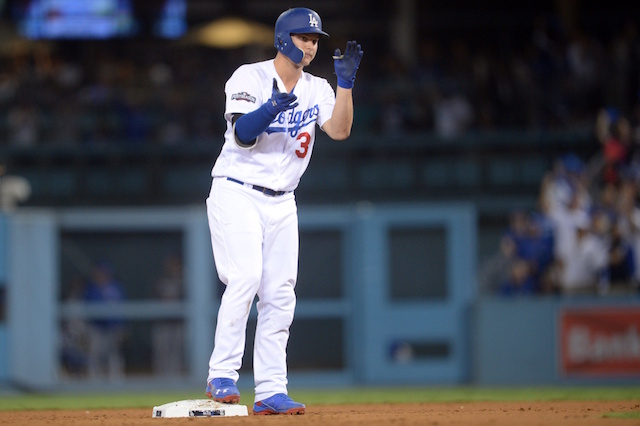Since taking over for the now-retired Bud Selig as MLB commissioner, Rob Manfred has carried forward his successor’s desire to improve pace of play. After tests in the Arizona Fall League, MLB games implemented a timer between innings, beginning in the 2015 season.
In January 2016, MLB reportedly was considering removing 20 seconds off the between-innings clock, and also potentially requiring managers to make pitching changes within a timed period. More recently, proposals were submitted to the MLB Players’ Union to shrink the strike zone and bypass the process of throwing four balls in the event of an intentional walk.
The union would need to approve either change in order for them to be implemented under the Collective Bargaining Agreement. Such isn’t the case for Minor League games, which is where MLB appears poised to test a new rule.
According to Jeff Passan of Yahoo! Sports, extra-innings games in the rookie-level Gulf Coast League and Arizona League will see a runner placed on second base:
Major League Baseball plans on testing a rule change in the lowest levels of the minor leagues this season that automatically would place a runner on second base at the start of extra innings, a distinct break from the game’s orthodoxy that nonetheless has wide-ranging support at the highest levels of the league, sources familiar with the plan told Yahoo Sports.
MLB Chief Baseball Officer Joe Torre believes the new rule will have a positive impact on the integrity of the game:
“It’s not fun to watch when you go through your whole pitching staff and wind up bringing a utility infielder in to pitch. As much as it’s nice to talk about being at an 18-inning game, it takes time.
“It’s baseball. I’m just trying to get back to that, where this is the game that people come to watch. It doesn’t mean you’re going to score. You’re just trying to play baseball.”
While the league will conduct tests this summer, the rule will be in play during the 2017 World Baseball Classic. A similar version has long been in place internationally.
Automatically putting a runner in scoring position with nobody out presumably will have a notable impact on managerial decisions, which could lead to more sacrifice bunts and intentional walks. That invariably could prolong the time of game, which MLB has proven to be sensitive to.
As it currently stands, only the NFL and NHL have a different set of rules for play that extends beyond regulation. The NFL modified their rules after the 2009-10 season to its current iteration — a field goal scored by the first team to possess the ball on offense allows play to continue, whereas a touchdown ends the game.
During the NHL regular season, a five-minute overtime period is played and a game goes to a shootout if the score remains tied. However, during the playoffs the league allows for an unlimited number of overtime periods to be played.






